July 2019

The Nature of Rasikas
Say, you have an invite to a dinner at a relative’s house, which is loaded with laddoos and chirotis (sweets). M S Subbalakshmi’s concert is scheduled elsewhere, at the same time. Which one of them would you have chosen? If you choose to go to your relative’s house, they will warmly welcome you and you will be given a royal treatment. On the other hand, no one will acknowledge your presence in the concert. You will have to...

वयमिह परितुष्टा वल्कलैस्त्वं दुकूलैः
सम इह परितोषो निर्विशेषो विशेषः।
स तु भवति दरिद्रो यस्य तृष्णा विशाला
मनसि च परितुष्टे कोऽर्थवान् को दरिद्रः॥
I’m happy wearing tree barks; silk garments please you. The satisfaction is the same; difference is merely apparent. A person is poor whose desire is limitless. Once the mind is content, who is the rich, who poor?
Set to the Mālinī meter, this verse gives expression to a home truth. We do not know...
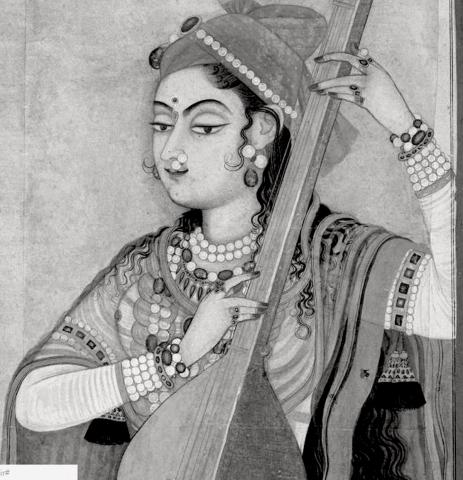
In Ramkumari, sex doesn’t merely remain on the plane of beauty or emotion but elevates itself to the status of a value. Her encounter with her employer, the wealthy lawyer and musical connoisseur Gore is one of the most splendid literary episodes. Indeed, Gore’s character is also quite an extraordinary creation of the author. The sexual attraction that he develops towards Ramkumari is rooted in a complex mixture of emotions: pity, compassion,...

Vyāsa is said to have presented to Brahmā the topics discussed in the Mahābhārata thus – “In this work there are several secrets of the Vedas; my definitive siddhāntas on them; several details and descriptions of the Vedas compiled from the ṣaḍaṅgas and the Upaniṣads; matters pertaining to the three time periods – past, present, and future; unambiguous descriptions about the nature of the origin and destruction of birth, death, fear, and disease...
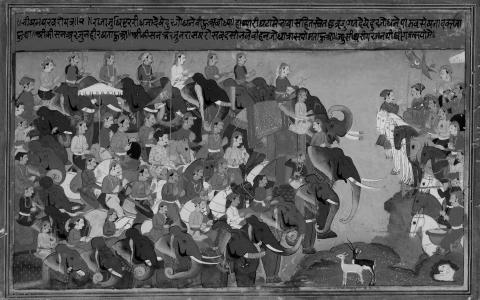
গীতার মূল উদ্দেশ্য ছিল অর্জুনকে যুদ্ধে সম্মত করিয়ে শত্রুনিধন। কৃষ্ণ তাঁর বাক্যে কোনরকম জড়তা না রেখে অর্জুনকে অগ্রসর হয়ে প্রতিপক্ষের সম্মুখীন হওয়ার কথা বলেন। অর্জুনের মনে এই প্রত্যয় আনয়নের পথে তিনি নানাবিধ যুক্তিজাল বিস্তার করেছেন (ভ. গী. ২.৩১-৩৩, ১১.৩৪)। কিন্তু এগুলি কোনও শূন্যগর্ভ উপদেশাবলী নয়। কৃষ্ণ নিজেও প্রচুর প্রাণনাশ করেছেন। তিনি নিজেও নিজেরই আত্মীয়স্বজনকে হত্যা করেছেন। তিনি নিজের মাতুল কংসকে বধ করেছেন কারণ কংস একজন ধর্মভ্রষ্ট অত্যাচারী শা...
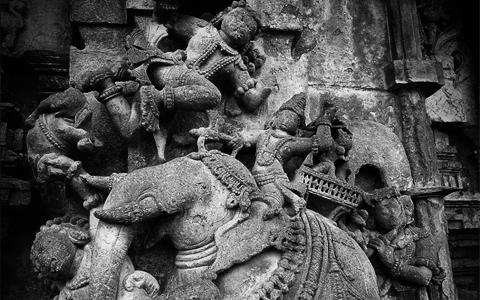
DROṆA-PARVA
नारायणं नमस्कृत्य
नरञ्चैव नरोत्तमम् ।
देवीं सरस्वतीं व्यासं
ततो जयमुदीरयेत् ॥
Having saluted Nārāyaṇa,
the human and the divine;
Sarasvatī; and Vyāsa –
May Jaya be hailed!
Upon the death of Bhīṣma – the warrior endowed with nobility, brilliance, strength, and valour, who seemed to be matchless on the battlefield – the Kaurava army became akin to a flock of sheep without a shepherd. Even so, they didn’t...

भोगे रोगभयं कुले च्युतिभयं वित्ते नृपालाद्भयं
माने दैन्यभयं बले रिपुभयं रूपे जराया भयम्।
शास्त्रे वादभयं गुणे खलभयं काये कृतान्ताद्भयं
सर्वं वस्तु भयान्वितं भुवि नृणां वैराग्यमेवाभयम्॥
In unchecked indulgence, there is the fear of diseases; in family’s pride, there is the fear of ill-reputation; in wealth, there is the fear of kings; in preserving our honour, there is the fear of humiliation; in power, there is the fear of adversaries; in beauty...

It will be appropriate to explain the purpose behind reminiscing several musicians and rasikas.[1] The purpose is simply the lament that connoisseurship has decreased in today’s world. Everywhere and in all walks of life, the business mindset reflected by the materialistic nature of people has increased. The number of people asking the question “What do you get by listening to music?” is increasing. High-rise buildings have value....
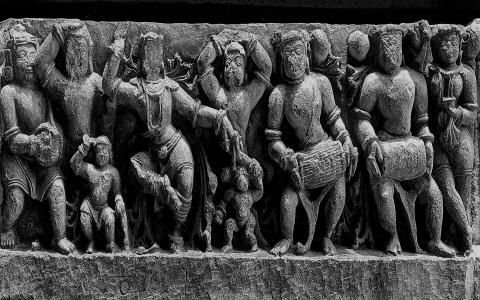
The mind and the intellect (manas and buddhi) are the two-primary means by which a man perceives the world and lets himself be perceived.
The eyes, the ears and other senses, and the parts of the body that shelter them become the instruments for the above two.
Training in arts strengthens the mind through refinement and the intellect acquires a refined strengthening through the knowledge of śāstras (roughly translated as ‘sciences’).
Art...
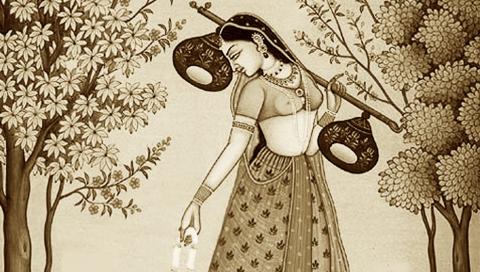
From one perspective, Ramkumari’s character is fundamentally tragic. She is the only character in Mandra who keeps “losing” throughout her life. Her loss isn’t merely her abandonment by Mohanlal or much later, by her own grown-up children who choose their long-estranged father’s fame and wealth over their mother’s lifelong sacrifice in nurturing them.
Dr. S. L Bhyrappa’s artistry once again comes to the fore in the superb Dhwani or suggestion...
